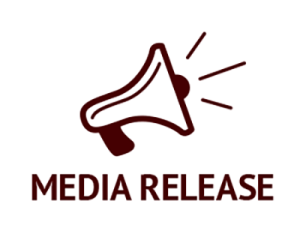Media Release: KAIROS digital hub to empower land defenders in Canada

KAIROS launches Canadian phase of MERE Hub through online events, June 16-21
(Toronto, ON) – KAIROS launches the Canadian phase of its digital platform Mother Earth and Resource Extraction: Women Defending Land and Water (MERE Hub) on June 21, National Indigenous Peoples Day. This launch will be preceded by a series of online events beginning June 16 and is part of Indigenous Women’s Month at KAIROS, which highlights and celebrates Indigenous women working to safeguard the health and welfare of their communities in Canada and the Global South.
Developed in consultation with women at the forefront of environmental protection, MERE Hub is an online resource that supports the empowerment of women land and water defenders in Canada and worldwide. It officially launched on November 25 with an initial focus on Latin America.
MERE Hub houses content and material to support research, advocacy, information sharing, and movement building regarding resource extraction and its gendered implications. The Canadian phase will highlight the current and historical role of women land defenders in protecting Mother Earth and provides links to maps, campaigns, guides, toolkits, and other published documents for and on land and water protection.
“As recent, ongoing, and historical land struggles indicate, in Canada and across the globe, Indigenous and Afro-descendant women are leaders in the protection of Mother Earth,” says Gabriela Jiménez, Latin America Partnerships Coordinator at KAIROS. “Women are not only the first to experience the effects of large-scale extractive projects, but they are also the ones who courageously take on the responsibility to defend land and water sources—despite the stigmatization, criminalization and violence that regularly accompanies this work. And Canada’s extractive sector at home and abroad is too often linked to human rights and environmental violations.”
The gendered impacts of Canadian resource extraction in Canada and overseas are extensively highlighted in Reclaiming Power and Place: The Final Report of the National Inquiry into Missing and Murdered Indigenous Women and Girls, as well as in international reports, community claims and lawsuits.
Leading up to the June 21 launch, KAIROS will host a series of online events, beginning with a webinar on June 16 to kick off Nina Lakhani’s book, Who Killed Berta Cáceres? Dams, Death Squads, and an Indigenous Defender’s Battle for the Planet. The virtual book launch will feature the author, as well as Vidalina Morales of ADES, who is based in El Salvador, and Ivonne Ramos of Acción Ecológica, a KAIROS partner based in Ecuador.
On June 18, KAIROS hosts the webinar: Stories of Courage: Women Defending Land and Water in Canada and Brazil. Later in June, MERE Hub will feature digital Stories of Courage – videos by women land defenders on their efforts to protect Mother Earth.
On June 20, MERE Hub will host images on land defense by La Suerte (Sofía Acosta), a visual artist from Quito, Ecuador. La Suerte created MERE Hub’s logo and illustrations.
MERE Hub was developed with and by women land defenders as a digital space to share resources, strategies, testimonies and advocacy. It was also developed in response to the alarming rise in reported criminalization, harassment and violence against land defenders by law enforcement and private security personnel and others linked to the extractive sector, often the subsidiaries of Canadian companies. More than half of the world’s mining companies are headquartered in Canada.
Published on Scalar, an open source publishing software, MERE Hub includes original content and a compilation of resources requested by women land defenders through an online survey circulated worldwide during the summer of 2019.
Resources include maps of concessions and existing projects, guides and reports on the rights of human rights defenders, links to organizational capacity-building resources, a list of organizations working on issues concerning resource extraction, practical guides on monitoring projects, and videos.
MERE Hub is one component of a SSHRC (Social Sciences and Humanities Research Council of Canada) Partnership Engage Grant awarded to KAIROS and Dr. Sherry Pictou, Assistant Professor of Women’s Studies at Mount Saint Vincent University. Dr. Pictou is a Mi’kmaw woman from L’sɨtkuk (water cuts through high rocks), known as Bear River First Nation, Nova Scotia. She is an inaugural fellow at Yellowhead Institute at Ryerson University. The project is also funded by the United Steelworkers Humanity Fund.
Since 2014, KAIROS has produced reports and videos on the gendered impacts of resource extraction, working in partnership with women land and human rights defenders and Indigenous women’s organizations. These partnerships have informed KAIROS’ work on the intersection of gender justice, ecological justice, and Indigenous rights. To learn more, visit: kairoscanada.org/what-we-do/gender-justice/gendered-impacts-of-resource-extraction-overview
About KAIROS: Canadian Ecumenical Justice Initiatives
KAIROS is a social justice organization that includes ten Canadian churches and religious organizations. We are Indigenous, settlers and newcomers in Canada working with people of faith or conscience all over the world for ecological justice and human rights. We deliberate on issues of common concern, advocate for social change and join with people of faith and goodwill in action for social transformation. Learn more: www.kairoscanada.org.
Media Contact:
Cheryl McNamara, Media Coordinator
877-403-8933 x 246, 416-875-0097 (mobile), cmcnamara@kairoscanada.org



